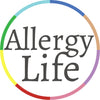What is Atopic Dermatitis?
A common type of Eczema is Atopic Dermatitis which is an Atopic Disease. Also referred to as Atopic Eczema, Atopic Dermatitis is a condition that causes irritation and inflammation of the skin. Atopic Dermatitis can range from mild to chronic that can look different depending on skin colour, skin type and age.
Genetics may increase the tendency to develop Atopic Dermatitis; however, the exact cause is unknown.
Atopic Dermatitis can vary in symptoms and severity, which can have implications on day-to-day life for not just the individual but also for the loved ones that live with someone with Atopic Dermatitis.
Note: It is important to note that Atopic Dermatitis is a condition that is not contagious.
What causes Atopic Dermatitis?
The exact cause of Atopic Dermatitis is unknown and is still being researched; however, it could be linked to some of the below common internal and external triggers-
Internal
- Family history of Atopic Dermatitis, Asthma and or Hay Fever (allergic rhinitis)
- Allergens that you're allergic to
- Stress
External
- Allergens that you're allergic to
- Irritants may include chemicals, weather conditions, tobacco smoke, and soaps
Please note these are some of the common triggers. The extent and the cause of Atopic Dermatitis can be determined by speaking to a qualified healthcare provider.
SYMPTOMS
Some of the symptoms of Atopic Dermatitis may be characterised by:
- Itching skin
- Dry, red, patchy and cracked skin
- Rough, thick skin
- In some cases, the skin can weep and look like boils on the skin (this could be an infection, please consult a qualified healthcare provider to find out more)
The validity and severity of these symptoms are dependent on the individual, as determined by a qualified healthcare provider.
TESTING AND DIAGNOSIS
A Diagnosis can be conducted by a qualified healthcare provider specialising in skin conditions. Diagnosis typically requires a skin examination with medical history.
There is no test to determine Atopic Dermatitis; other tests, such as Allergy Testing (Skin Prick, Blood Test, Patch Test, etc), may be conducted to rule out other conditions and triggers.
TREATMENT
If you experience or are in the presence of someone who encounters a serious reaction (this may include difficulty breathing, wheezing, throat tightening, swelling, collapse, etc), follow their action plan or emergency instructions and call or have someone call Triple Zero (000) immediately.
Common treatment* options for Atopic Dermatitis are:
- Moisturising your skin with enough moisturiser twice a day
- Using lukewarm water when bathing
- Washing your skin with non-soap cleansers/products such as hypoallergenic washes and cleansers
- Avoiding known triggers from allergens and irritants
- Using anti-inflammatory creams and ointments
- Treating bacterial skin infections (staph infections with antibiotics or using Bleach baths)
- Medication- Based on individual symptoms and requirements, the following medications may be prescribed by a qualified healthcare provider-
- Antihistamines
- Antibiotics
- Topical corticosteroids
- Oral steroids
- Immunosuppressants
- Bandaging
- Materials-
- Wearing loose 100% cotton or bamboo clothing
- Washing bedding and clothing in hypoallergenic detergent and hot water
- Using anti-Dust Mite bedding (if allergic to dust mites)
- Removing tags on clothes or bedding that can be an irritant
- Using hypoallergenic pillows and doonas
- Dusting the house regularly
- There may be other prescribed creams, treatments, medications or suggested materials as determined by a qualified healthcare provider
*Please note any treatments and/or medications administered must be managed as directed by a qualified healthcare provider; otherwise, it could result in adverse effects.
It's important for anyone with Atopic Dermatitis, to discuss treatments with a qualified healthcare provider to understand how to manage individual symptoms and also to set up an Action Plan in the case of symptoms.
Always present your Allergy Card, Medical Alert Bracelet or Necklace to ensure healthcare providers, family members, friends, colleagues and others are aware of your Allergy, Allergies or Health Conditions.
RANDOM FACT
It was around 2500 years ago when the condition of chronically itchy skin was first mentioned by Hippocrates, an Ancient Greek physician who treated a patient with symptoms that correspond to Atopic Dermatitis today.
SUPPORT
Below are the support options available:
- Eczema Support Australia- Eczema Support Australia is a charity dedicated to connecting, informing and advocating for Australians affected by Eczema. They offer a growing number of support services for people with Eczema.- Click here to learn more
- Allergy Life Australia Online Peer Allergy Support Groups- These monthly online Support Groups allow Families with allergies and Adults with allergies to have open and genuine discussions about various topics related to their life with allergies. These groups are inclusive of all allergies. Click here to learn more
The information provided on Allergy Life Australia is to generally educate and inform you about living with allergies, intolerances and conditions, and is not intended as medical instruction or as a substitute for diagnosis, examination and advice by a qualified healthcare provider.




